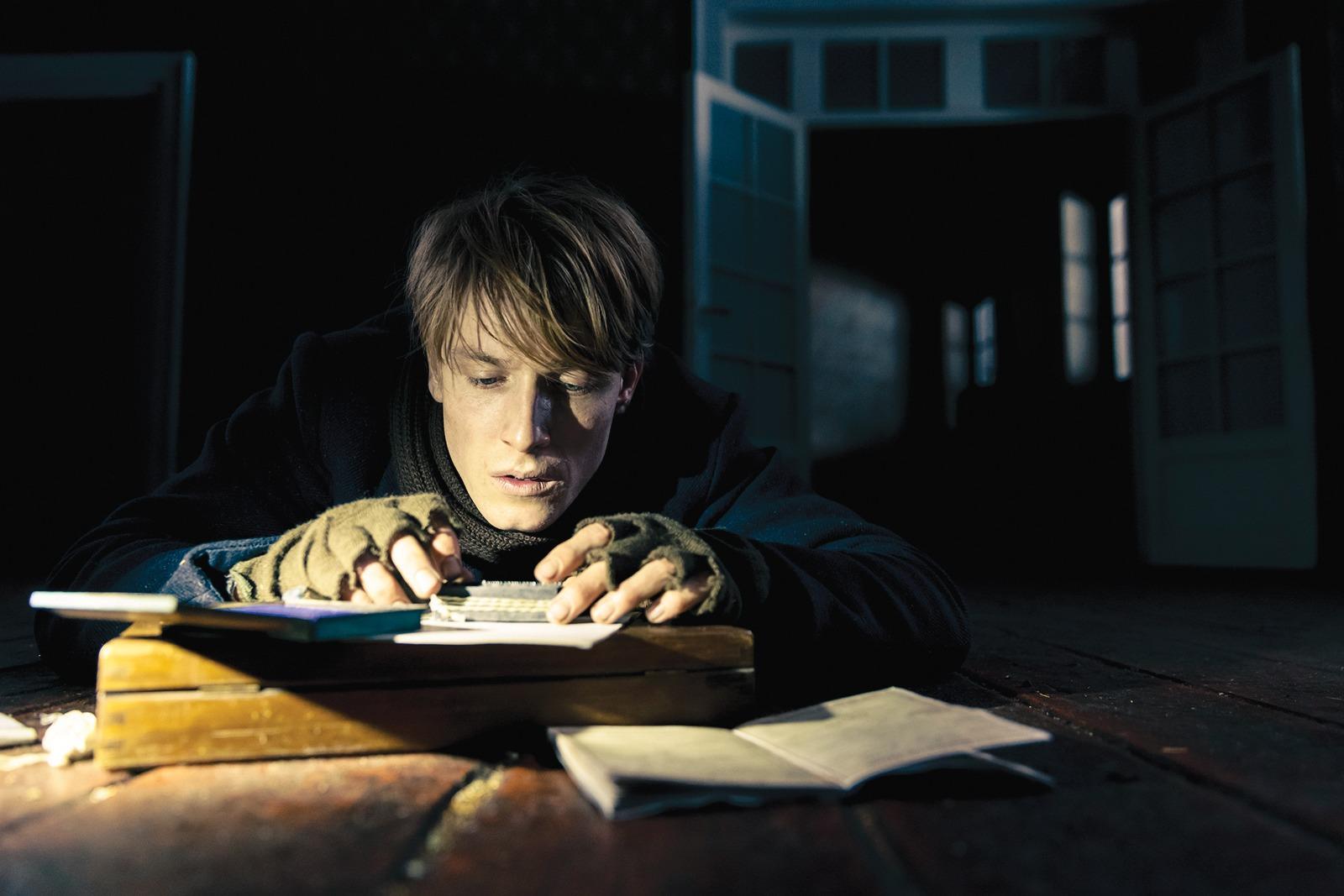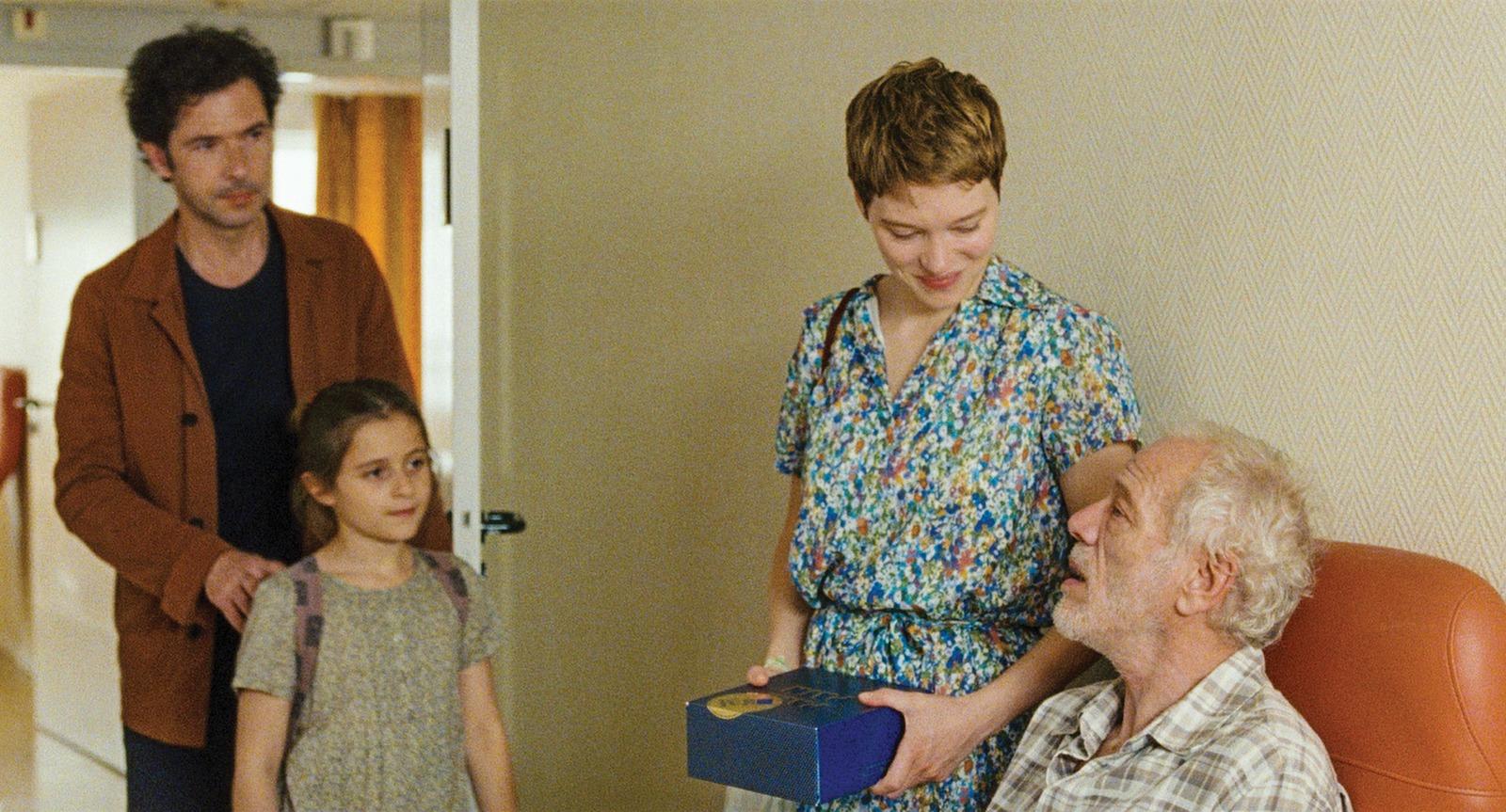 The Forger, written and directed by Maggie Peren. Starring Louis Hofmann and Luna Wedler. Germany, 116 minutes, IIA. Opens Sept 21. (PHOTO PROVIDED TO CHINA DAILY)
The Forger, written and directed by Maggie Peren. Starring Louis Hofmann and Luna Wedler. Germany, 116 minutes, IIA. Opens Sept 21. (PHOTO PROVIDED TO CHINA DAILY)
It’s official. They may still be in theaters, but the summer of Barbenheimer is officially over. With both the American writers’ and screen actors’ guilds on strike, what lands on our screens in the coming weeks is, with few exceptions, going to look decidedly less American.
Leading us into fall are The Forger and One Fine Morning, two European films that have been waiting for a chance to be seen. It would be easy to label Maggie Peren’s historical drama a biopic — it’s based on a memoir by a World War II-era German Jew who forged passports for other Jews — but the film’s slender focus on a short period of time when the Third Reich thought it was right ironically widens the lens, eventually giving it a taste of spy thriller. In Mia Hansen-Løve’s One Fine Morning, on the other hand, nothing at all happens. The film is a simple portrait of a woman at a crossroads, where the people and relationships that she thinks she has figured out come into flux. It is an exemplar of contemporary French cinema.
In The Forger, Cioma Schönhaus (Louis Hofmann) is a 21-year-old Jewish graphics student, fortunate to have an “exemption” in 1942 Berlin. He lives in his parents’ flat — they’ve been deported — subject to regular inspections from the Gestapo and scorn from his landlord. Nonetheless, when he’s not working in a munitions factory, he’s out on the town, dining in restaurants and otherwise hiding in plain sight. When his design skills get the attention of lawyer and Confession Church leader Franz Kaufmann (Marc Limpach), he begins a cocky career forging identity papers for other Jews until he’s forced to do some for himself.
 One Fine Morning, written and directed by Mia Hansen-Løve. Starring Léa Seydoux and Melvin Poupaud. France, 112 minutes, IIB. Opens Sept 21. (PHOTO PROVIDED TO CHINA DAILY)
One Fine Morning, written and directed by Mia Hansen-Løve. Starring Léa Seydoux and Melvin Poupaud. France, 112 minutes, IIB. Opens Sept 21. (PHOTO PROVIDED TO CHINA DAILY)
The Forger does away with any exploration of the inherent contradictions of Schönhaus’ decisions, jettisoning the real man’s famous escape to Switzerland on a bike, for example, in favor of a strangely jaunty tone that laughs at the Nazis’ obliviousness to Jewish creativity. Peren’s dedication to painting Schönhaus as gleefully defiant of his circumstances is refreshing. Still, this is a Holocaust story. Sometimes the light tone clangs with history.
One Fine Morning’s success is entirely attributable to Léa Seydoux’s tremendous performance as translator Sandra Kienzler, a widow and single mother whose famous writer father Georg’s (Pascal Greggory, La Vie En Rose) health is failing fast. She’s resigned to her life as it is — caring for dad, getting her daughter to school, interpreting at high level conferences, going home alone, rinse and repeat. But reconnecting with old friend Clément (Melvil Poupaud, Time to Leave) stirs long-forgotten desires — physical, intellectual, experiential — in her.
Writer-director Hansen-Løve (Bergman Island) revisits the themes she has explored throughout her career — mortality, loss, emotional and cerebral dependence, and independence. The film is a picaresque drama of the everyday, hopping from season to season as the protagonist grapples with the contradictions between what she feels and what she knows. She is entirely recognizable — the kind of entirely real woman that gets short shrift on screens. We ping-pong back and forth between rooting for her and an urge to caution her, but all the while we understand her choices — good and bad. Matching her scene for scene are Greggory and Poupaud as the towering men in Sandra’s life that, miraculously, never become her raison d’etre, just filters through which she views her life.


